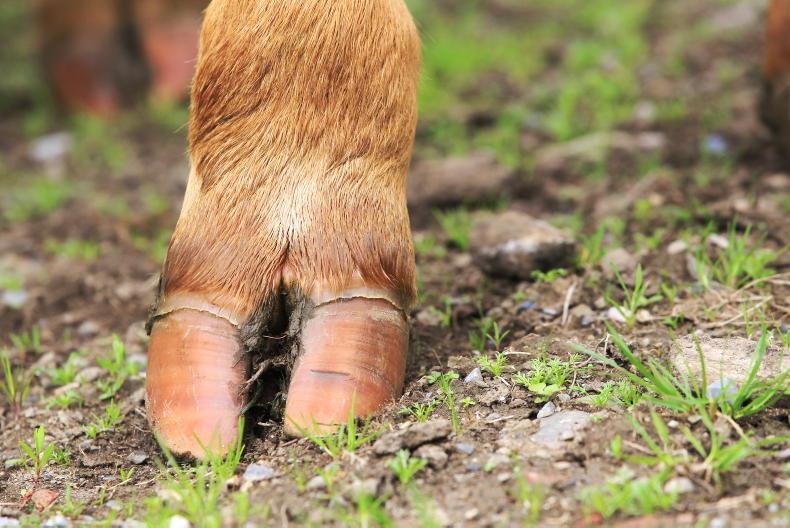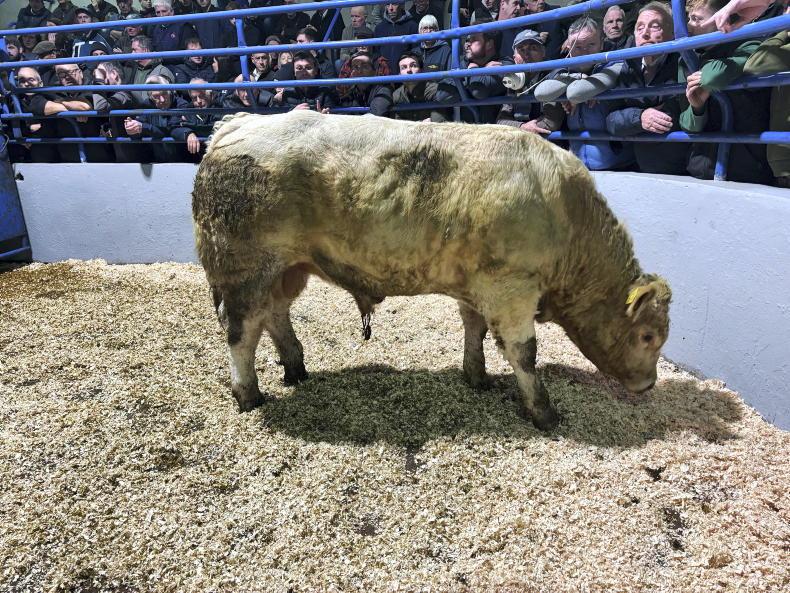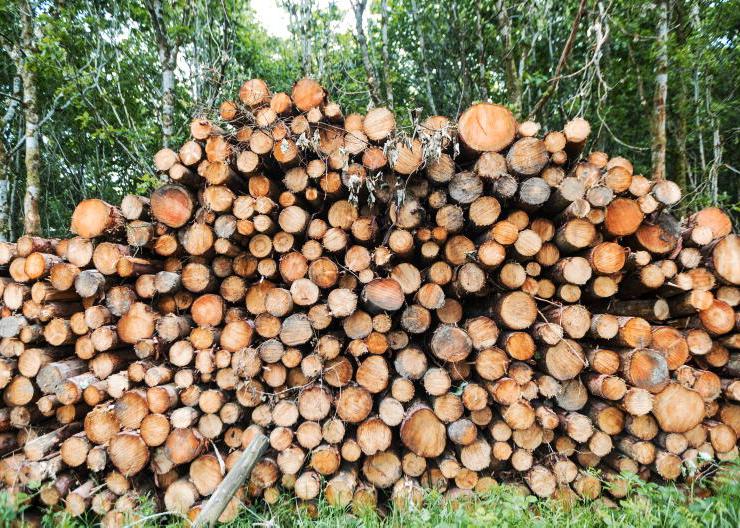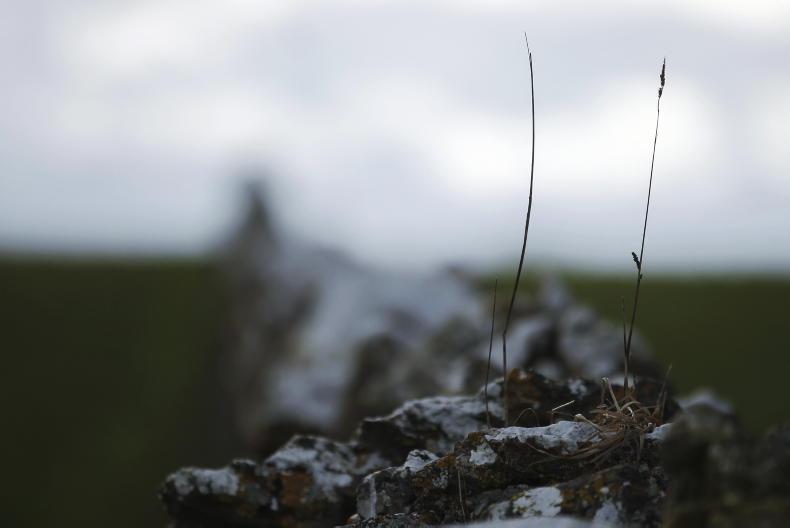Sligo District Court heard recently that a senior official employed by the Department of Agriculture and involved in investigations into animal welfare continued to be employed by the Department despite being in breach of animal welfare regulations, including having dead and injured animals on his land, and failing to have his cattle tested for four years.
Bernard (Brian) Kilgarriff (64) of Bricklieve, Castlebaldwin, Co Sligo, was convicted of animal neglect and animal welfare breaches, relating to the presence of four dead animals found on his land, along with failing to have his animals tested for TB and Bovine Viral Diarrhoea (BVD) since 2016.
During this time, and during the investigation into the alleged breaches, Sligo District Court heard that Kilgarriff remained employed by the Department of Agriculture on a full salary, and still holds his position.
Breaches
Kilgarriff pleaded guilty to two charges relating to the testing breaches. He also pleaded guilty to four of 10 charges relating to neglect or being reckless regarding the health or welfare of an animal.
Helen Johnston, BL, prosecuting on behalf of the Department of Agriculture, told the court the defendant was a senior agricultural official whose job was to oversee schemes and was involved in a number of animal welfare investigations. It was outlined a complaint was made to the Department on 14 January 2019 and on further inspection the online system showed the defendant had no record of bovine testing since 2016.
Letters
A letter was issued directing him to have his cattle tested and on 21 January contact was made with in relation to same. Kilgarriff told vet, Kevin Carter, that he had to get a shed sorted to facilitate testing. On 8 February a reminder letter was issued and prior to this a health and welfare notice was also issued to him.
A call was made to Kilgarriff on 19 March and he told the caller he still had not sourced accommodation for his animals. The court was told animals must be tested for TB annually and calves under 20 days of age must be tested for BVD.
In December 2019 a complaint was made to the Department by a woman in a local donkey sanctuary who had concerns that Kilgarriff’s lands were in quite a state and there was an animal carcass on the land.
The court was told Oliver Hamilton from the Department made nine visits to the farm between December 2019 and January 2020 where four carcasses were found. One of the animals had been dead for up to four weeks.
Vet Ger Murray inspected the land in January 2020 and noted there were carcasses present. He told the court he saw an animal with a large lesion and on the same track of land found a cow against a hedge, untagged, and in considerable pain.
The vet, with the help of others, managed to corral the animals and remove them to another farm nearby
The animal had a broken bone in its right foot and had to be put down. The ground was muddy and waterlogged. There were animals present in the yard, including one which had horns that could cause damage to other animals.
There was no dry area for cattle to lie down and the shed was unusable. The vet said essentially there was no shelter for animals on the land. He noted there was severe poaching on the land, lack of fencing to prevent animals from going out on to the public road, along with significant rubbish on the land.
Rubbish
Rubbish included oil cans, batteries and bags of ash, which if ingested could prove poisonous.
Animals had access to a building site close by where materials were also discarded and the vet said he suspected this could be where the cow with the broken foot sustained its injury.
He told the court it was very notable there was a lack of facilities for corralling or restraining animals, and nowhere to treat a sick animal. The vet, with the help of others, managed to corral the animals and remove them to another farm nearby.
A black bull and two Charolais cows had to be put down due to their emaciated condition and weakness. Two more animals died over the following two weeks.
Concerns
Mr Murray said he met with the defendant on the land and said he was cooperative. The vet told the court he had “great concerns” in relation to the farm given there was no areas for animal husbandry or treatment. Ms Johnston clarified to the court that Kilgariff was a Department employee and it was a case of, “gamekeeper turn poacher, poacher turn gamekeeper.”
“He was breaching the very rules he was keeping,” she added.
Herd number
It was also clarified to the judge that the defendant was still employed by the Department and still on duty at the time. The court heard the defendant still has a herd number, and currently has nine registered animals – some of which were untagged and not tested.
Of the 61 animals the defendant had previously on his land, 41 had no identification.
The vet said he saw very small amounts of fodder present.
There was no round feeders on the land and concentrate meal was thrown on a wall and fallen on to ground where animals licked it. Animals were also found to be standing in faecal matter, with lands severely poached and rubbish strewn about.
The court heard the defendant still has a herd number, and currently had nine registered animals – some of which were untagged and not tested
No inspection has been carried out on the farm since.
Mr Eoin McGovern, BL (defending), told the court his client is a married father of two who has farmed all his life and always took great pride in farming. The court was further told these incidents were of “deep regret” to the senior agricultural official and he was ashamed of what had happened, especially given that he lives within a farming community.
Documents were handed into court regarding Kilgarriff’s health issues.
“Everything started to get too much for him, he was over stocked with cattle and the weather turned for the worse,” said McGovern. The judge questioned why he had not had his animals tested since 2016. McGovern said infrastructure on the land was an issue, along with the lack of help at home.
“In hindsight he should have invested in infrastructure and got help,” added the barrister.
Wild
McGovern also said because of his lack of contact with the animals they became wild which in turn inhibited his ability to round them up. Kilgarriff had apparently been buying bagged meal every second day for his stock, however, this was not distributed into feeders or troughs.
In relation to his failure to remove dead animals from his land, counsel for Kilgariff said he feared no machine could go in and get them given the underfoot conditions.
The Department subsequently used a machine to remove the animals. Sixty cattle had been taken from the land, and the court was told the farmer now has 18 cattle on 200 acres of land and profits from this were to cover the expenses incurred by the Department.
Mr McGovern outlined his client had €2,000 in court and was happy to give it to charity.
It was heard the prosecution costs were €500 in relation to the carcass matters.
Work
Asked by Judge Kevin Kilrane if his client was working with the Department while the investigation was ongoing, Mr McGovern clarified he was working, however, due to these alleged breaches he was restricted in what he could do through the course of his work.
He also had periods of leave from work due to his mental health issues.
“The only thing that amazes me is this man is still a senior agricultural officer with the Department, and secondly, during the currency of this he was still collecting a full salary. A gentleman overseeing the very matters for which he has pleaded guilty,” the judge commented.
Role of the Department
The judge was also critical of the Department’s pursuit of matters and said it should have been more “robust” and it had been too lenient.
“He still has cattle on land, he should not have a herd number bearing in mind what I’ve heard.
It’s a criticism of the Department that they haven’t followed up with this with greater urgency.
And no recent inspection in court today.” The judge continued, adding that it was very worrying there was no testing of cattle since 2016 and that the Department still allows him to keep untagged and untested cattle.
“Every conceivable regulation has been breached. The cattle on his land were in the most shocking state of suffering.”
The judge again mentioned Kilgarriff continuing to collect a salary while being in breach of the very regulations he was employed to uphold.
“The photos are shocking. Carcases left unburied, one animal not de-horned, one lying clearly in pain, blood coming from nostrils and apparently a fractured right front leg.”
Judge Kilrane said neglectwas a mild word for the state the cattle were in and instead he described it as “the greatest form of cruelty”. Kilgariff was convicted on the two testing charges and fined €1,000 in each matter.
In relation to the carcases on his land, Kilgariff was given a four-month suspended prison sentence on each of the five charges. The suspensions were given providing Kilgarriff does not hold a herd number for a period of five years and he must dispose of the cattle currently on his land within two months, whether they are tested or untested.
He is not to acquire any livestock during this period.
“Not alone should he know better, but he does know better and is trained and qualified to know better,” the judge concluded.










SHARING OPTIONS